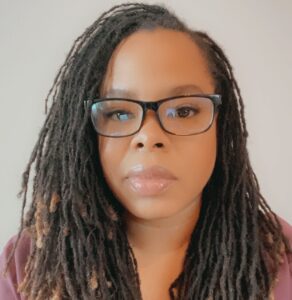
What Miss Frizzle Teaches Me About Teaching - Part Two: Make Mistakes

How are you doing with taking chances? Are you engaging the wonder in your students, or are you still grading participation posts? If you read part one then you know what I’m talking about. For today’s episode of what Miss Frizzle teaches us about teaching, we learn about making mistakes. Not learning how to make them per se (because let’s face it, we all have plenty of experience) but what to do when we make them.
Mistakes are inevitable. They will happen. Part of the reason we fear them so much is because we are still recovering from the trauma of unrealistic expectations from our graduate programs, or from our education in general (I’m looking at you formerly “gifted and talented” students). It may seem redundant then to be told to do the thing that you have already done and will certainly do in the future. But the advice to make mistakes isn’t about intention, it's about adaptation (cough…taking chances…cough).
In a world where failure and risk are old friends…
If I had to choose one thing that scientists and entrepreneurs have in common, I'd say it's that both understand that failure is information. Scientists have revolutionized their fields by using information gained from failed experiments. Think of the countless medicines that didn’t work for the illness they were intended for, only to produce an outcome that changed the medical field. In the same way, entrepreneurs are learning about trends, marketing, supply, demand, and a whole host of other things when they start something that doesn’t work out. If you are going to be a person to take risks (go ahead honey, take a chance!) then you will have to embrace making mistakes.
But wait, you say, a failure and a mistake are not the same thing! A failure is when you do something and it doesn’t work out, while a mistake is doing something wrong. And you’d be correct. A failure focuses on the outcome, while a mistake focuses on behavior. This is why you can make mistakes but you cannot be a failure (go ahead and read that again). And while mistakes made along the way can aid to the result of a failed outcome, several other factors, many beyond your knowledge and control, makeup that failed attempt.
Let’s play a game… Where it's all made up and the points don’t matter.
So, how and why would you be intentional about making a mistake? Remember, the lesson isn’t about intentionality per se, it's about adaptation. Being intentional about making mistakes means being intentional about taking chances and risks. One of the best and easiest ways to do that is through the act of play. Playing a game is about creativity and knowing which of the rules you want to keep, bend, or break (every UNO player understands this). You are willing to push the boundaries or cross them to meet the games’ goals creatively, or to make a better play experience. One of the best examples of this is improv. Improv thrives on making mistakes. Nothing is wasted, and the space feels limitless. You can say the wrong word, or get caught off guard by another’s response, or even fall off the stage, and there will be someone there, not necessarily to catch you, but to use your “mistake” to continue the time of play. This communal act of play creates a kind of generativity that encourages you to make mistakes.
So, what does this have to do with Theological Education?
Much of our objectives in theological education feel daunting. We want our students to say something meaningful about the divine, or about implications on our world. We train them to lead others in matters of the heart, mind, and spirit. We do deeply meaningful work. This is the kind of work where mistakes matter. Where we are held accountable for the implications of our theology. Our theological intentions land somewhere, usually in the lives of other people. I recognize that asking someone to make a mistake in this context is no small thing. But that is exactly why we need to encourage it in our classrooms.
I approach all of my classrooms as part of a grand experiment. Students are encouraged to “say the weird thing” (IYKYK) then work-out what that means in community. If I didn’t encourage my students to make mistakes, then how am I preparing them to lead? Preach? Teach? How can I teach them to adapt if I attempt to create a space with no obstacles for them to adapt to?
If students say or bring up concepts about God that cause tension, we work through it. I help them understand the implications of their theological actions. And yes, they make “mistakes.” So do I. But because we do not forsake play in the classroom we learn to adapt. Taking chances means making mistakes. And like scientists we learn from the outcomes. We discover the ways theology can help us change the world, especially in ways we didn’t originally intend. We do this because we’ve learned that mistakes do not automatically end in failure. They create a possibility to open up a new pathway we didn’t originally plan. They generate new lessons we didn’t know we needed to learn. And for that, they will always be worth making.
Leave a Reply